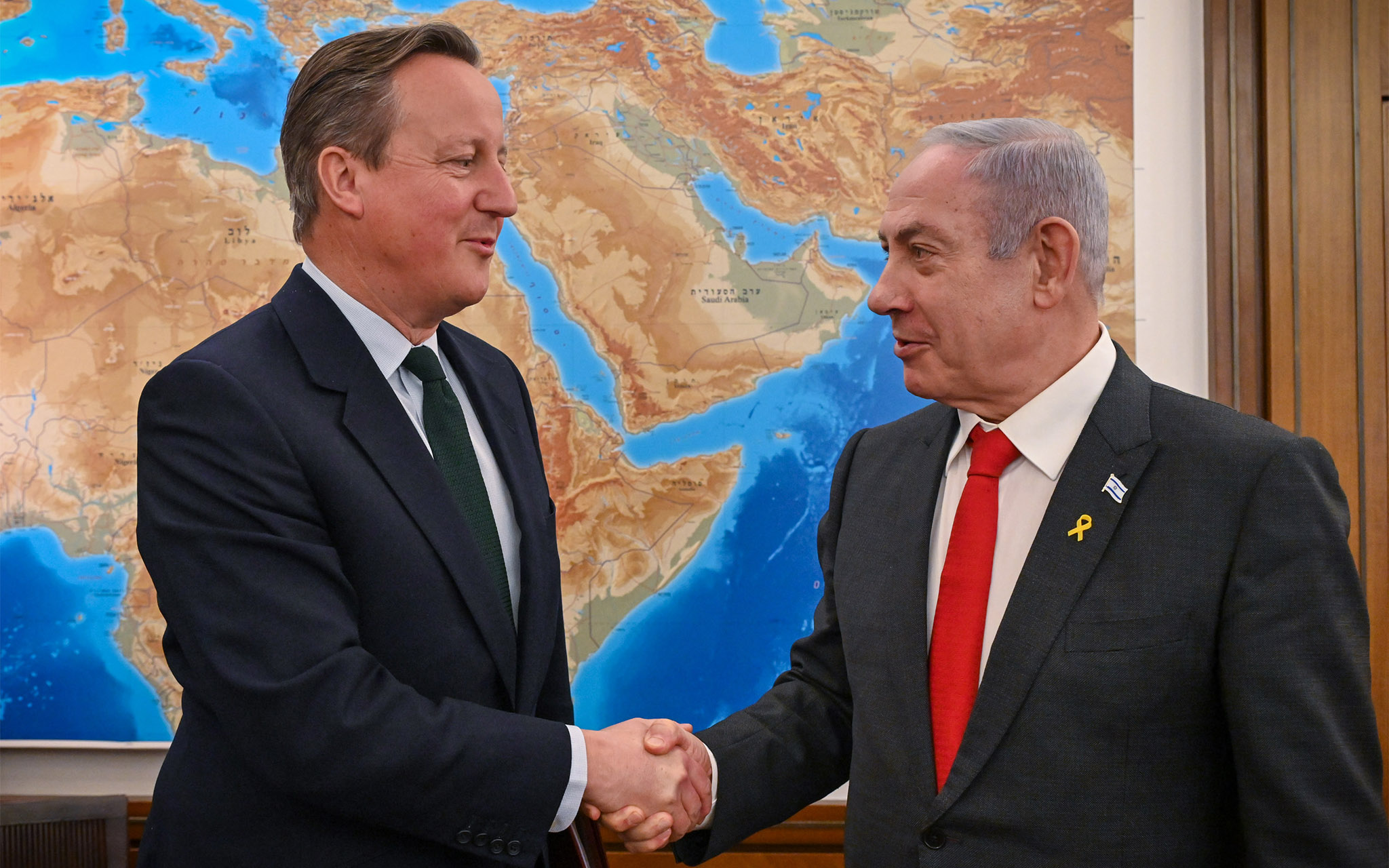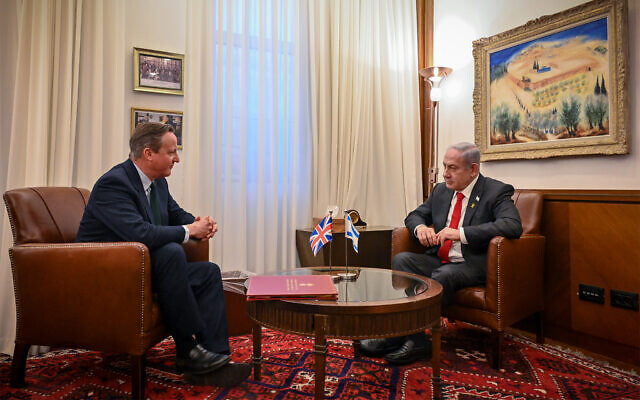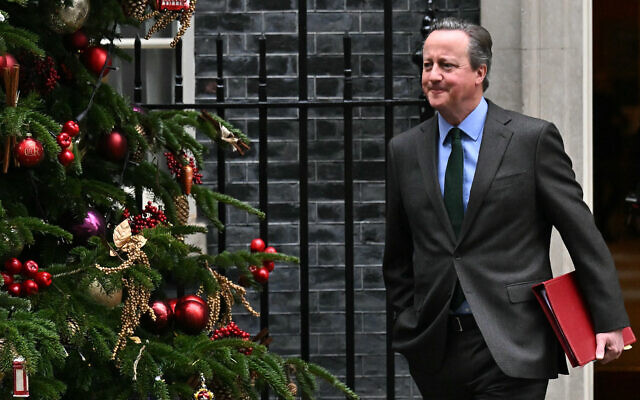



The UK is considering recognizing a Palestinian state as a way to apply pressure on Israel to accept a two-state solution, British Foreign Secretary David Cameron said at a Westminster reception Monday.
Speaking to an audience of Arab diplomats at the House of Commons, Cameron said such recognition would represent “irreversible progress to a two-state solution and, crucially, the establishment of a Palestinian state.”
“We have a responsibility there because we should be starting to set out what a Palestinian state would look like; what it would comprise; how it would work,” he said. “As that happens, we, with allies, will look at the issue of recognizing a Palestinian state, including at the United Nations. This could be one of the things that helps to make this process irreversible.”
Cameron mentioned ongoing efforts to end the war in Gaza, telling audience members that “there is a path that we can now see opening up where we really can make progress, not just in ending the conflict, but progress in finding a political solution that can mean peace for years rather than peace for months.”
He also criticized Israel for failing to make headway toward an end to the Israeli-Palestinian conflict, saying that despite the Jewish state’s rising standard of living over the past three decades, its failure to guarantee its citizens’ security meant that “for Israel… the last 30 years has been a failure.”
Cameron’s speech came on the eve of his fourth visit to the region since his surprise appointment to the post of foreign secretary in November. He was in Israel just last week to hash out details of a deal to free hostages held by Hamas. He also stressed the need to move toward a sustainable ceasefire in meetings with Prime Minister Benjamin Netanyahu and Foreign Minister Israel Katz.

The ceasefire is part of a five-point plan the UK is pushing that would see an end to the fighting, a “political horizon” for a two-state solution, and a technocratic Palestinian government that would run both Gaza and the West Bank. Hamas’s leaders would be expelled to another country.
Earlier this month, Cameron told British lawmakers he was concerned that Israel may be violating international law in its Gaza campaign. However, the British Foreign Office has rejected South Africa’s accusation that Israel is committing “genocide” in Gaza.
The war in Gaza was triggered by Hamas’s brutal October 7 onslaught on southern Israel, which saw some 3,000 Hamas-led gunmen storm the Jewish state to murder nearly 1,200 people, mainly civilians, and take over 250 hostages of all ages, while committing numerous atrocities and engaging in rampant sexual violence.

The war has claimed the lives of over 26,000 Palestinians, according to the count of the Gaza Strip’s Hamas-controlled Health Ministry, which cannot be independently verified, and which does not distinguish between civilians and combatants. The Israeli Defense Forces say they have killed some 10,000 Hamas operatives, believed to comprise about 25% of the terror group’s fighters.
A former prime minister, Cameron has long supported a two-state solution plan, but resisted unilateral Palestinian moves toward statehood, such as the Palestinian Authority’s 2015 bid to join the International Criminal Court. In 2014, as prime minister, he abstained during a symbolic House of Commons vote to recognize Palestine, which passed by an overwhelming majority of 274-12.
